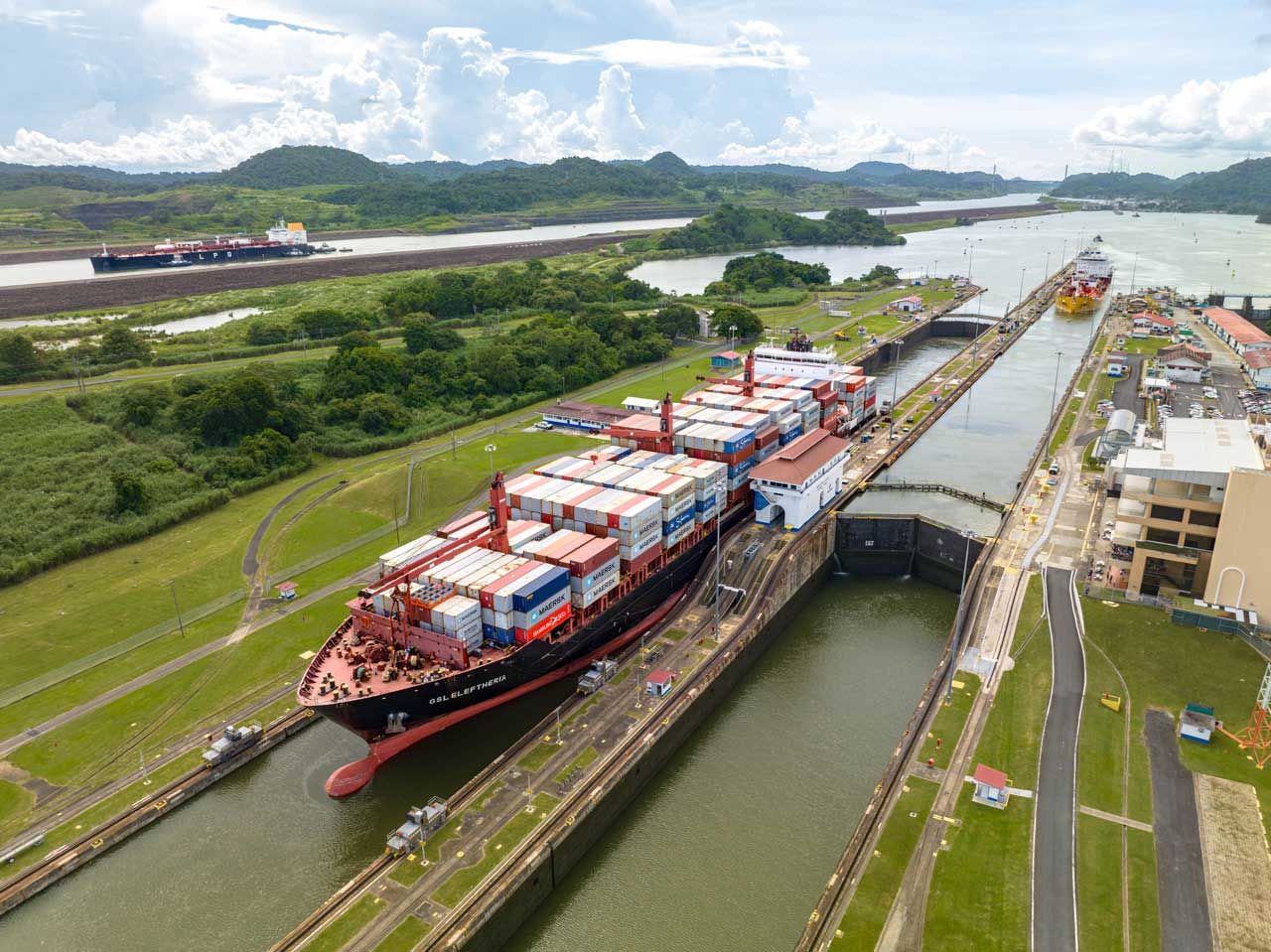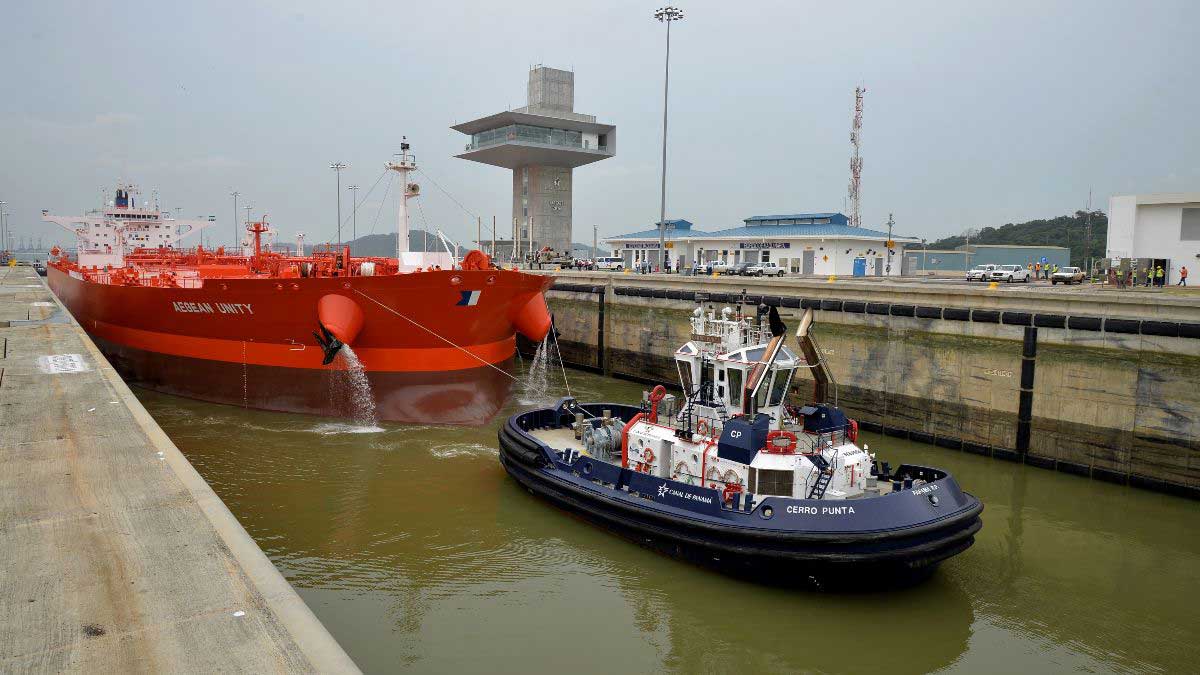to Bring Asian Goods to U.S. Consumers
NEW ORLEANS, Louisiana – July 10, 2003 – With the majority of Panama Canal traffic originating from or traveling to the Gulf Coast and East Coast of the United States, the Panama Canal Authority (ACP) announced today an historic move to boost trade by striking a strategic alliance with the Port of New Orleans. The alliance will increase cooperation – such as joint marketing and coordination on modernization projects – between the Panama Canal and the Port of New Orleans. Specifically, the two will seek to boost trade along the increasingly important All-Water Route, the global commerce link from Asia to America’s Gulf Coast and East Coast via the Panama Canal.
Today’s event at New Orleans’ Plimsoll Club between the ACP and the Port of New Orleans was highlighted with a formal signing of a Memorandum of Understanding (MOU) by the Administrator of the Panama Canal, Alberto Alemán Zubieta and Executive Director of the Port of New Orleans, Gary P. LaGrange. Leading business and government figures from Louisiana, shipping dignitaries and distinguished guests attended the ceremony.
Containerized cargo flowing through the Panama Canal on the Asia-U.S. Gulf Coast and East Coast route has experienced significant growth during the past few years because shippers’ demand for all-water services. In 2002, the Port of New Orleans had 302,318 TEUs in containerized cargo with total cargo tonnage of 33,939,400. The Port of New Orleans is creating jobs and producing economic development in the region because of increased volume and investment – and the two entities hope to continue this trend and increase traffic through the Canal.
“Having recently shifted our model to run the Canal as a business, this alliance with our friends at the Port of New Orleans is an example of the ACP’s aggressive strategy to improve services for our customers, generate economic development in Louisiana and increase trade along the All-Water Route,” said Canal Administrator Alberto Alemán Zubieta. “The Canal can no longer be a stand alone entity; we must continually pursue smart business alliances. Today’s agreement will bring real tangible benefits – a win-win for our customers, the people of Louisiana and the people of Panama,” Alemán concluded.
Specifically, the parties involved may conduct the following activities:
- Joint Marketing Activities to generate new shipping business via promotions, advertising and public relations activities;
- Data Sharing to forecast future trade flows and market trends;
- Market Studies Exchange that may benefit either party in future product development or business venture;
- Sharing of Information Related to Modernization and Improvement projects that serve as a benefit to business and spur increased demand; and
- Technological Interchange of advanced technology capabilities and programs to spur cutting-edge programs in the shipping and maritime community.
All joint activities pursued will be done to provide the highest level of reliability and improved services for both parties’ customers. The strategic alliance established through the MOU will continue for one year, and will be renewable on an annual basis.
About the Panama Canal Authority
The Panama Canal Authority is the autonomous agency of the Government of Panama in charge of managing, operating, and maintaining the Panama Canal. The operation of the Panama Canal Authority is based on its organic law and the regulations approved by its Board of Directors. For more information, please refer to the Panama Canal Authority’s website www.pancanal.com.
The Authority’s responsibility to the Panamanian people is paramount. The Canal belongs to the people and benefits from the Canal should accrue to as many Panamanians as possible. The Authority will plan its future so that it will continually contribute to the economic development and welfare of the citizens of Panama.
For nearly 90 years, the Panama Canal has served as the global gateway – a pathway for the shipment of major world commodities. Since the end of 1999, the ACP assumed the responsibility for the management, operation and modernization of the Canal as well as the protection and conservation of its watershed. In the past four years, the ACP has made significant strides – shifting to a market-oriented business model focused on customer service and reliability, making major capital investments for new and modern equipment and machinery, increasing safety and operational efficiency for customers, decreasing the time it takes ships to travel through the Canal and widening and deepening sections of the waterway. An important transportation link, the Canal services more than 140 different transportation routes from every corner – It is where major trading routes of the world connect and intersect providing safe, reliable and secure passage for all vessels.




